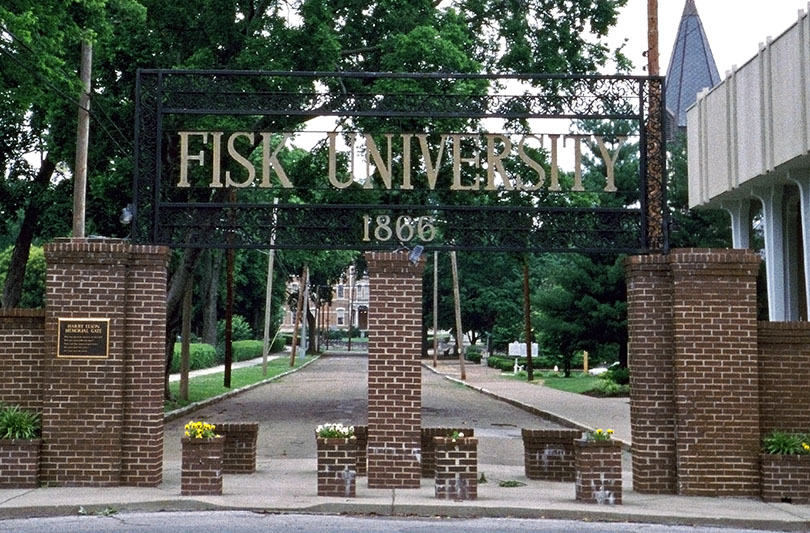
Fisk University in Nashville, Tennessee
Fisk University
History
Barely six months after the end of the Civil War, and just two years after the Emancipation Proclamation, three men established the Fisk School in Nashville, Tennessee, named in honor of General Clinton B. Fisk of the Tennessee Freedmen’s Bureau.
Committed to educating the newly freed slaves, who ranged in age from seven to seventy, the first classes convened in 1866 in facilities situated in former Union army barracks near the present site of Nashville’s Union Station.
In addition to its reputation as an educational institution of excellence, Fisk is world-renown for its famous Jubilee Singers who originated as a traveling group in 1871, desiring to raise enough money to keep open the doors of their debt-ridden school. The singers — soon gained distinction throughout the United States, then began traveling through Europe as well.
The group’s success enabled the school to remain open and permitted the construction of Jubilee Hall, the South’s first permanent structure built for the education of Black students. Now a National Historical Landmark, Jubilee Hall remains the dramatic focal point of Fisk’s campus.
Academic Merit
Fisk University attracts students from around the world and has a reputation of contributing more alumni to the ranks of doctorally prepared African American scholars than any institution, Black or White, in the U.S. In fact, among currently practicing Black physicians, lawyers, and dentists, one in six is a Fisk graduate.
Fields of study include:
• African Studies
• Afro-American Studies
• Art
• Biology
• Business Administration
• Chemistry
• Computer Science
• Criminal Justice
• English
• History
• Mathematics
• Physics
• Political Science
• Psychology
• Sociology
• Social Justice
Illustrious alumni include Nikki Giovanni, the award-winning contemporary poet; W.E.B. DuBois, the great social critic and co-founder of the NAACP; the great educator Booker T. Washington and many others.
Campus Life
Campus buildings include the Academic Building (Carnegie Hall), Carl Van Vechten Gallery, Harris House, Shane Hall, Fisk Memorial Chapel, and Talley-Brady Hall.
Student groups and associations encompass the Alabama, Arkansas, California, Chicago, Florida, Georgia, Kansas, Louisiana, Michigan, and Mississippi Clubs; Caribbean Students Union; African Student Association; Kucheza African Dance; and Big Sister Mentoring & Etiquette Program, among others.
Nearby off-campus recreation includes Music Row with the Grand Ole Opry, the famous Opryland Hotel, historic Market Street, Printer’s Alley, the Tennessee State Capitol, and the historic Black Business District as well as numerous other Black historic and cultural sites.
ADDRESS: 1000 Seventeenth Avenue North, Nashville, TN MAP
PHONE: 615-329-8500
WEBSITE: https://www.fisk.edu
